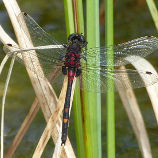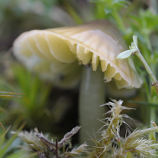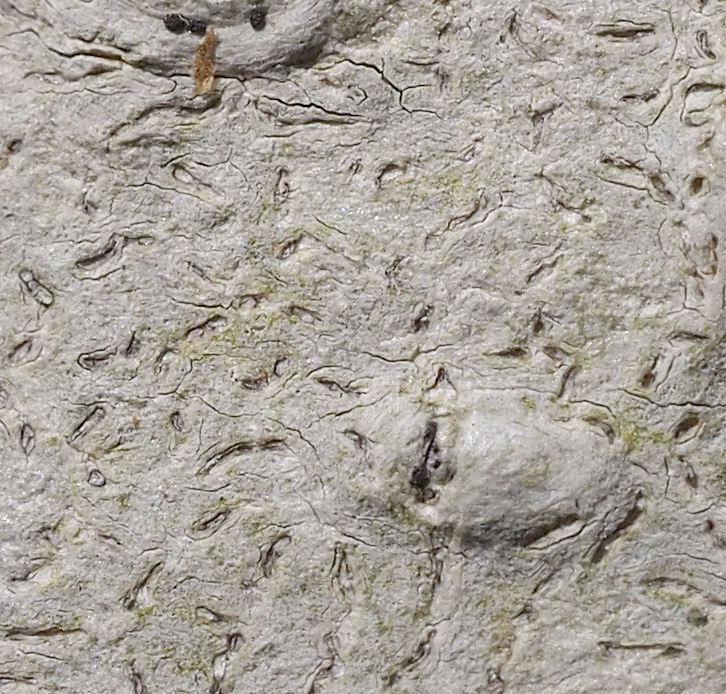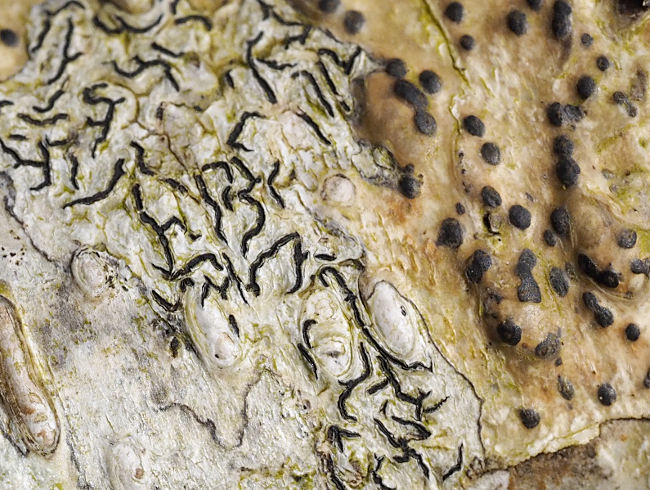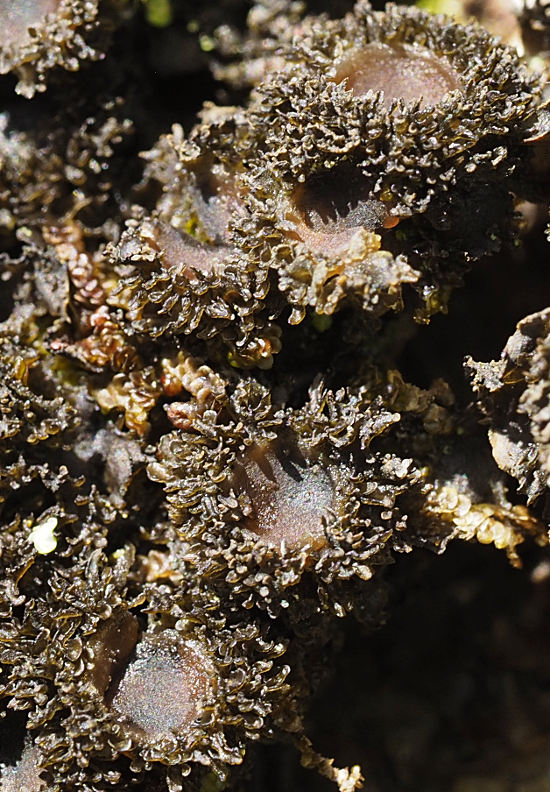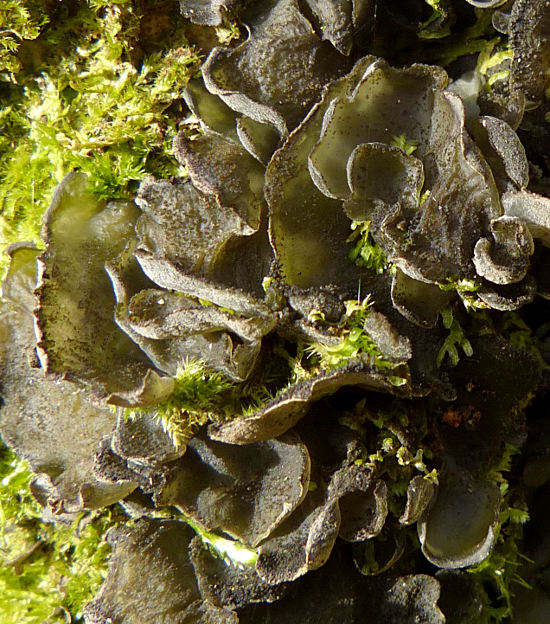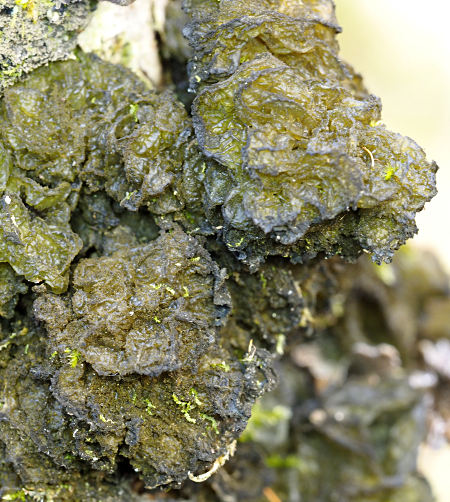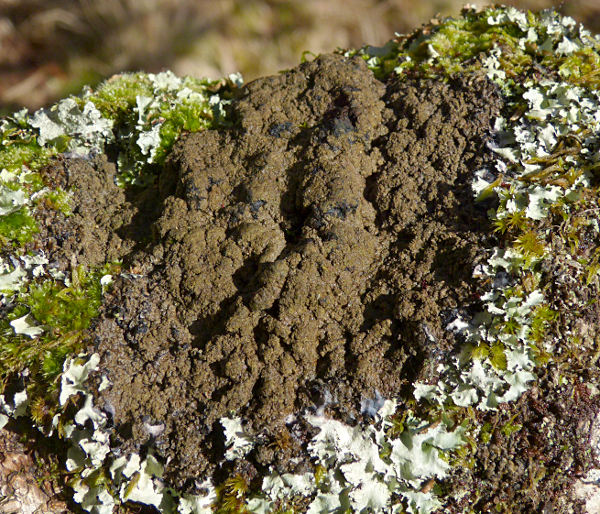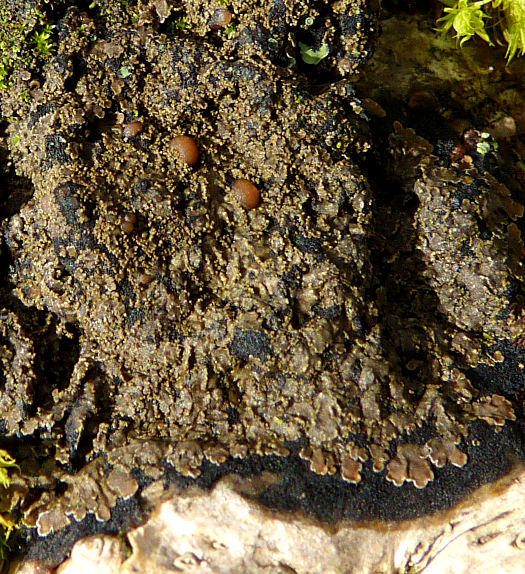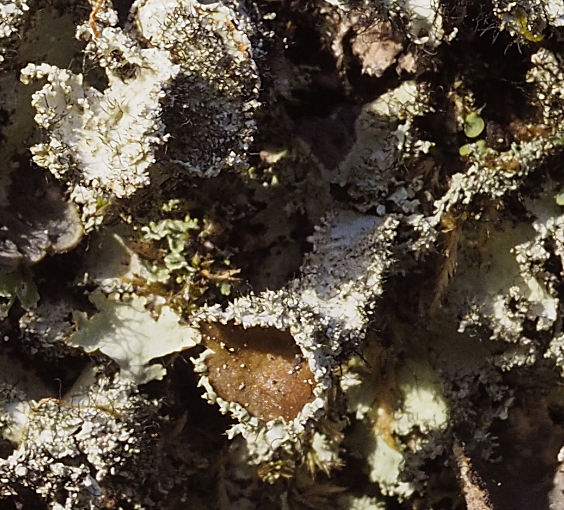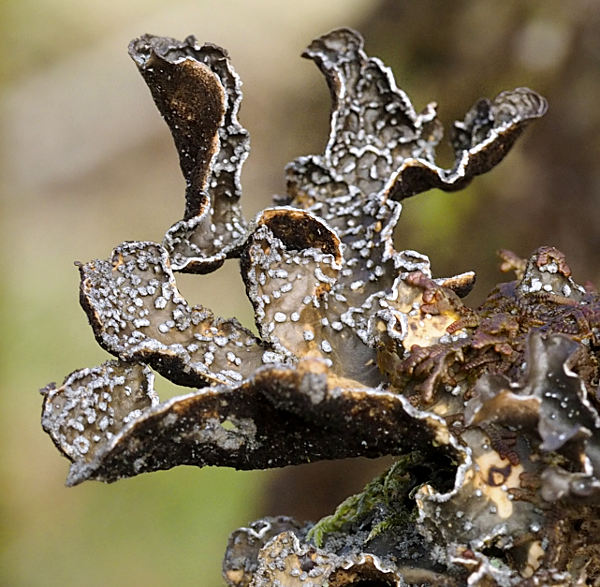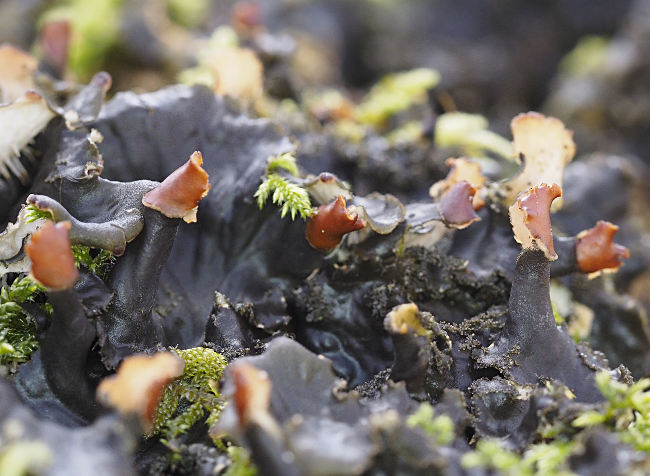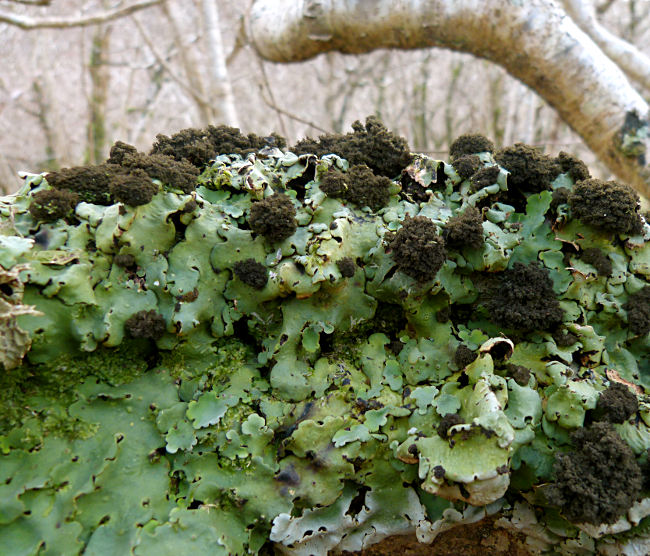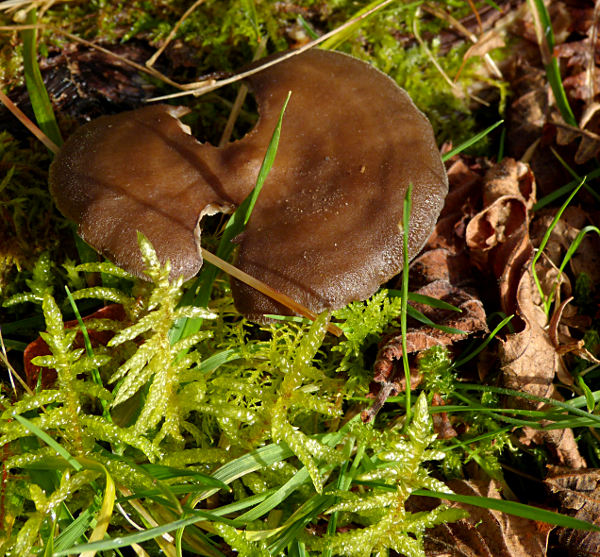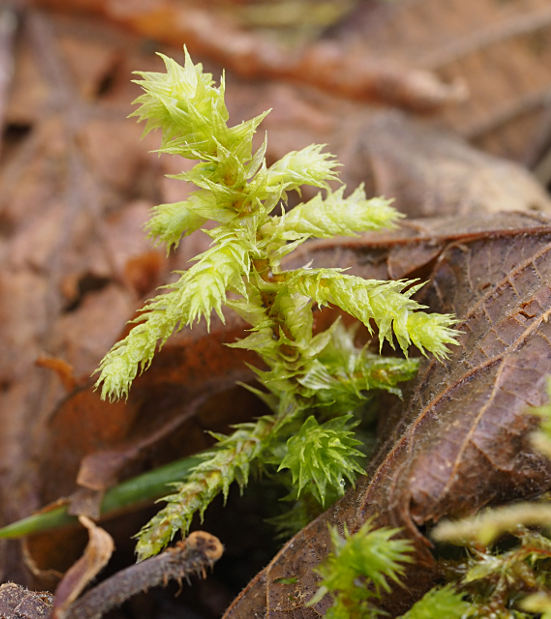| ||||||
Graphis alboscripta
Photos by Jan Hamilton and Carl Farmer. Mouse over photos to see credits and other details.
White Script Lichen (Graphis alboscripta), known only
from a few Scottish west coast hazelwoods.
Common Script Lichen (Graphis scripta) on the left and
Pyrenula occidentalis on the right. These are crustose lichens of
the smooth bark found on young hazel stems before they become overgrown
with mosses and liverworts.
Pyrenula laevigata, another lichen of smooth young
hazel stems, its edges marked by rows of small black dots.
Octopus Suckers (Collema fasciculare), a jelly lichen
that swells up when wet, as here.
Frilly-fruited Jelly Lichen (Leptogium burgessii), one
of the commonest and most easily-recognised jelly lichens.
Leptogium hibernicum, a rare oceanic jelly lichen.
Another rare jelly lichen, Leptogium coralloideum.
Fuscopannaria sampaiana. Smells of Juicy Fruit
chewing gum.
Parmeliella triptophylla. The orange blobs are
fruitbodies, which are unusual in this species.
Another species that rarely fruits is Desperate Dan
(Parmotrema crinitum) which was abundant on hazel in the wood, and here
has a fruit surrounded by the stubble which gives the lichen its English
name.
Norwegian Specklebelly (Pseudocyphellaira norvegica)
Rough Dog Lichen (Peltigera praetextata)
Nephroma laevigatum
Lobaria amplissima. This lichen contains both a
green alga (in the smooth green areas) and a cyanobacterium (in the
bushy brown growths).
Among the few fungi seen were Winter Polypore
(Polyporus brumalis) on a partly buried hazel stick...
...and Leafy Brain Fungus (Tremella foliacea) on old
standing hazel bark.
Finally, LNHG's Species of the Month, Teddy-bear Moss (Rhytidiadelphus triquetrus), was abundant on the woodland floor. News menu Next
Photos © Jan Hamilton and Carl Farmer. Mouse over
photos to see credits and other details.
|
